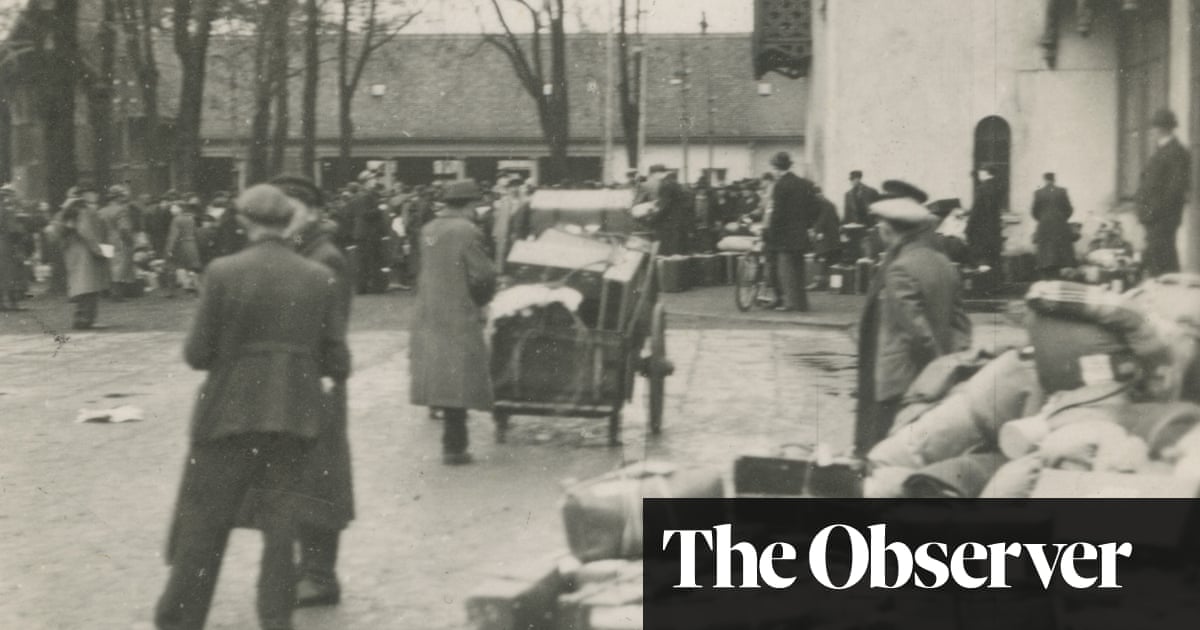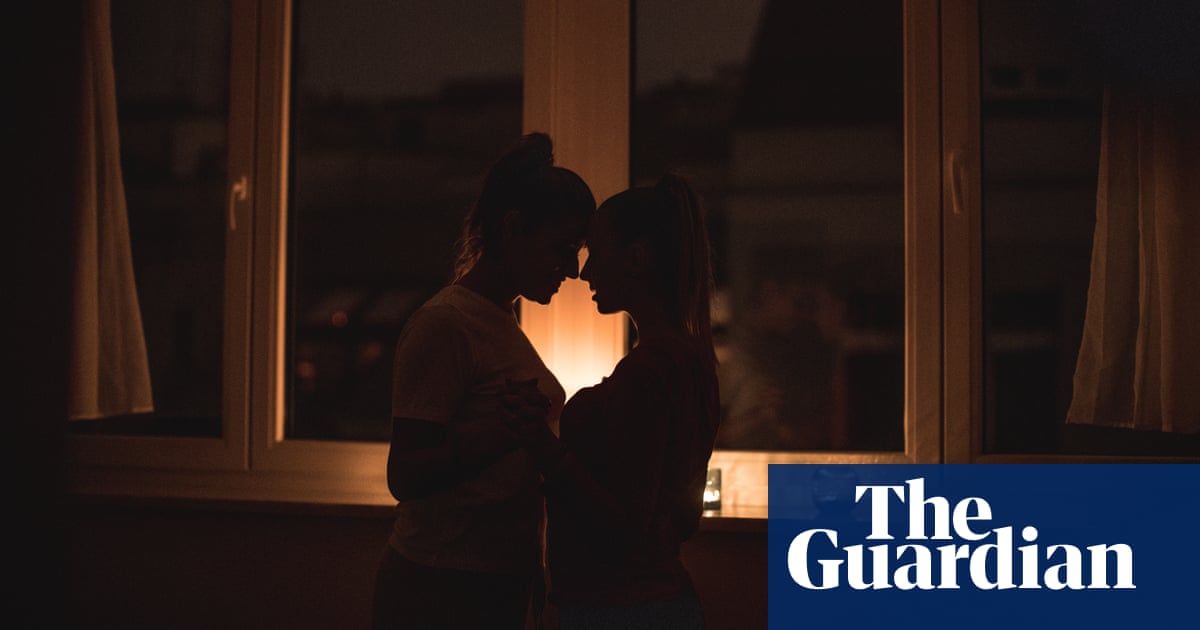
You wouldn’t think of Daryl McCormack, 29, as a chameleon of an actor. Chiselled face, green eyes, leading man material, sure, but not a shape-shifter. In the forthcoming film Good Luck to You, Leo Grande, however, he looks like a guy in an advert for a £60,000 watch. In the opening shots, it’s faintly grating, like being sold the story rather than told it; as it moves on, you realise his self-assurance and slick, complicated perfection is just part of the texture and subtlety.
In Peaky Blinders, which he joined in season five, he looks, let’s just say for brevity, pretty comfortable with a gun in his hand, and in the Guardian office on a regular Tuesday morning, the Irishman looks open, unassuming and affable, as if he can’t wait to help you with something. Versatility is a constant theme, and not just in the roles he chooses: had he fulfilled his promise as a 12-year-old in Tipperary, he would have been a professional hurler. “I had a golden era in hurling,” he says, with exaggerated sincerity, “and then I didn’t hit my growth spurt the same way other young men did. That peak and then the fall … my ego at 14 was taking a hit. But I lived to tell the tale.” He fleshes this out with piquant details, as if I might not believe him. I definitely do.
Good Luck to You, Leo Grande sounds like a young actor’s anxiety dream: a full-length feature with no other actor besides McCormack and Emma Thompson, no set besides a single, characterless hotel room, and a challenging premise that can’t afford to put a foot wrong. There is nowhere to hide in this movie; every word, every gesture, has to be perfect.
Thompson plays a retired teacher, recently widowed who, after a lifetime of uninspiring sex with one man, hires McCormack as a sex worker. At the start, she worries constantly at the ethical dimension of her decision, as if she’s picking a scab – surely he’s being exploited, doesn’t he mind, what terrible thing must have occurred to make him do this, who’s the oldest person he’s ever had sex with, why is he so vain? There’s a lot of levity to McCormack’s performance, but also pride and self-respect. “I really didn’t want to put on my shoulders that I would be representing sex workers. To me, that was too much of an undertaking for one man.” He sometimes has quite a courtly turn of phrase, the gift I imagine of really only concentrating at school when he was playing hurling or doing Shakespeare, then going straight to Dublin Institute of Technology, and afterwards to the Gaiety School of Acting, the National Theatre School of Ireland.
“Of course, I was exposed to the idea of the degradation of sex workers, seeing those stereotypes, because it’s shown in films and stories so often. And then I spoke to real sex workers via Zoom, and I met people who had gone on their own individual journey, found their own sense of authority, power and identity. I was speaking to people who weren’t victimised, who had a sense of who they were and who found a lot of joy and vocation in what they did.”
Thompson’s jangly, almost-unwatchable anxiety and body-shame recede, and she becomes very task-driven: she wants oral sex both ways, she wants it doggy-style, she wants it all in their second session because he’s quite expensive; it’s so human that it’s excruciating, and her brusque to-do list is another mask. “I think you see him opening doors for her and then saying it’s safe to step through,” he says. “Then you see her anger or denial, or whatever it is, and then eventually she makes her way through, and there’s another door. This is another thing I learned from sex workers. That it isn’t always just about the physical, there’s so much more to what they do. He really saw the yearning in her to explore these things, and how bold she is.” Leo Grande is trying to get across something more than sex, that “it’s not vain to love your body, if you are loving your body, not loving what the world tells you your body should be like in order to be loved”.
The pair’s relationship may be transactional on paper, but it’s a two-way street, and “they both leave that room at the end of the film different people”. “I don’t think Leo expected to be changed. I think he thought it would be like a swan dance, with him leading the whole thing.” Looking back, McCormack can’t put his finger on what was more daunting about the whole thing: playing opposite Thompson, “knowing that you’re in the presence of someone who’s done it all” or just feeling “overwhelmed, terrible imposter syndrome, just feeling sure they had cast the wrong Leo. But in the end, your only option is to connect with the story and connect with your dancing partner. And it was Emma Thompson, so I was in good hands.” He absolutely loves Thompson, but everybody says that.
McCormack grew up in Nenagh, Tipperary, with his mother, a single parent. She met his father fleetingly in the US when she was young; she is now 52, and has just moved to Peterborough. Did she do that to be nearer her son, now that he lives in London? “No,” he says, surprised. “I think she did it for her own life, actually.” His memories of Nenagh are extremely fond, and the place has even fonder memories of him; his former science teachers come up to him in the pub when he goes home and tell him how proud they are of his career, like a Sally Rooney novel. But it was complicated. “I was one of the only biracial or non-white kids who were Irish, so there was an element of being an outsider. I have an American family as well. So I had to find more spaces where I could explore that part of my identity, become more fully formed.”
It helped that he was incredibly good at everything, not just the hurling – his paternal grandfather is certain that, had he been raised in the US, he would have been a basketball pro. All the time, he was acting, singing, being in a band. “Sometimes I felt like I was an elephant in the room, but I was a jovial pink, dancing elephant. I didn’t try to hide. In a way, I embraced my difference and I knew there was something beautiful about being different. And that was its own journey.”
He and his grandad have a very close relationship, some seam of similarity that separation by continent and parents were no match for. “When he was in his 20s, in the 1970s, he was out in LA, trying to become an actor. So he had his own journey with it and he really is very proud, vicariously living through me now. He just loves seeing his grandson go on the journey he’s gone on himself, and I’ve got to the point where I’m going further than where he finished.”
McCormack’s career looks effortless to the point of being pre-ordained. He did 36 episodes in Ireland’s longest running soap, Fair City, just after drama school, made his West End debut at the age of 24 in The Lieutenant of Inishmore, and won round the cast and audience of Peaky Blinders when he joined, in 2019, as a replacement for another actor, which is notoriously hard to do. “I desperately wanted to feel part of it. I didn’t want to come in as the fumbling new kid who doesn’t know how to shoot the gun. It got a lot easier in season six.” In 2020, he starred in the British comedy-thriller Pixie, alongside Olivia Cooke, Ben Hardy, Colm Meaney and Alec Baldwin. When I met him, he was about to fly to Dublin for Bad Sisters, a new Sharon Horgan show for Apple TV+ in which he is cast in all 10 episodes. No observable dry spells, almost no documented disappointments (though he just missed out on Star Wars: The Force Awakens).
Yet you could never read his CV as the strategy document for the building of the brand Daryl McCormack, he aspires more to lose himself in the work than put his stamp on it. “As an actor, it’s not like you sit behind a character. You sit behind the belief of the project. If the message is liberating, I’m not just invested as an actor, I’m invested as a person, with the entireness of my being. If I read a script like that, my toes start tingling. I’m just so excited that it’s being made, even if it doesn’t come to pass that I’m cast in it.” The self-effacing actor – no offence – sounds like a contradiction in terms. But there it is, there Daryl McCormack is, contradicting the terms.












